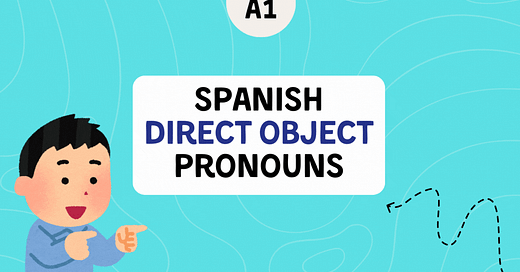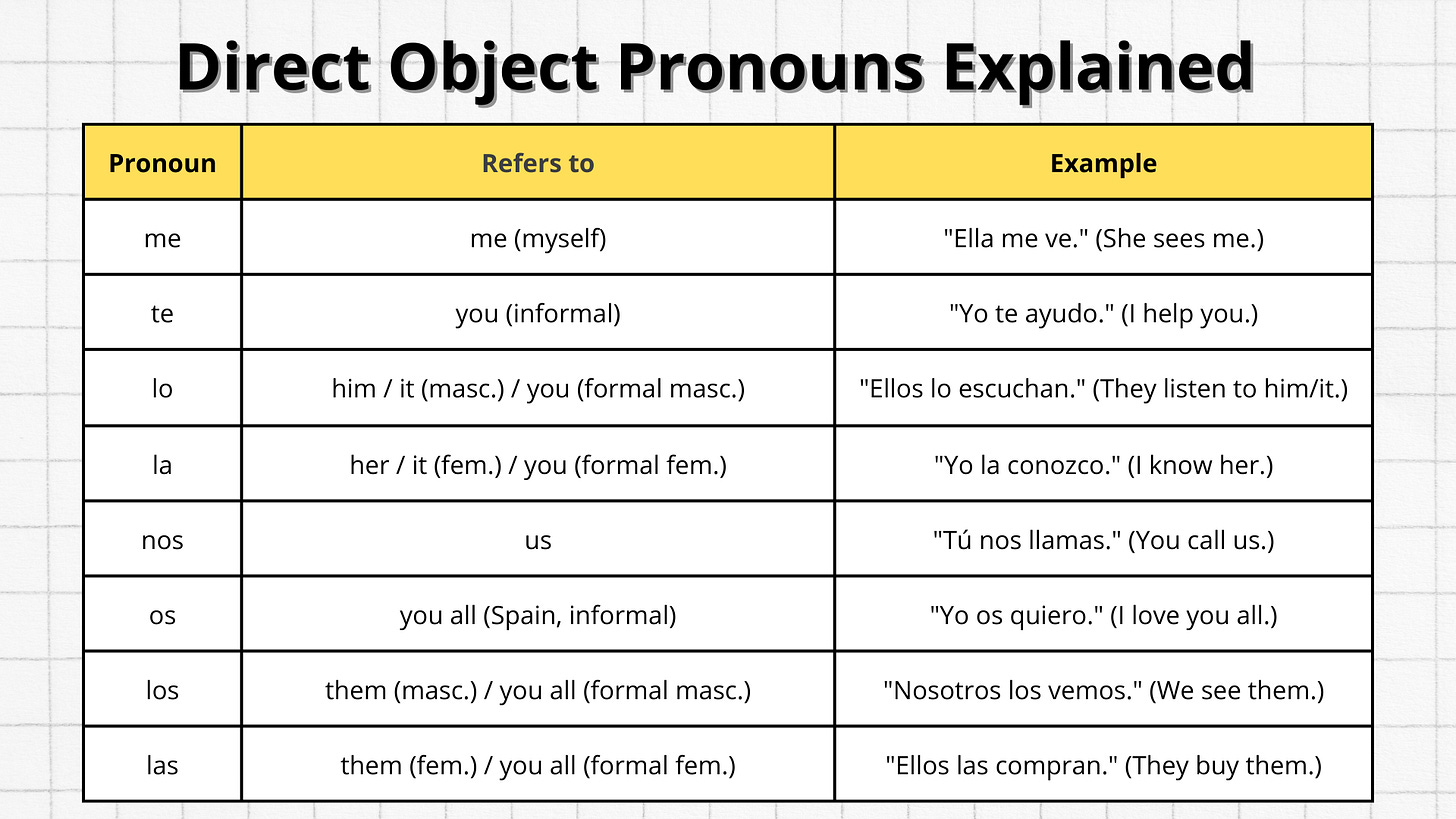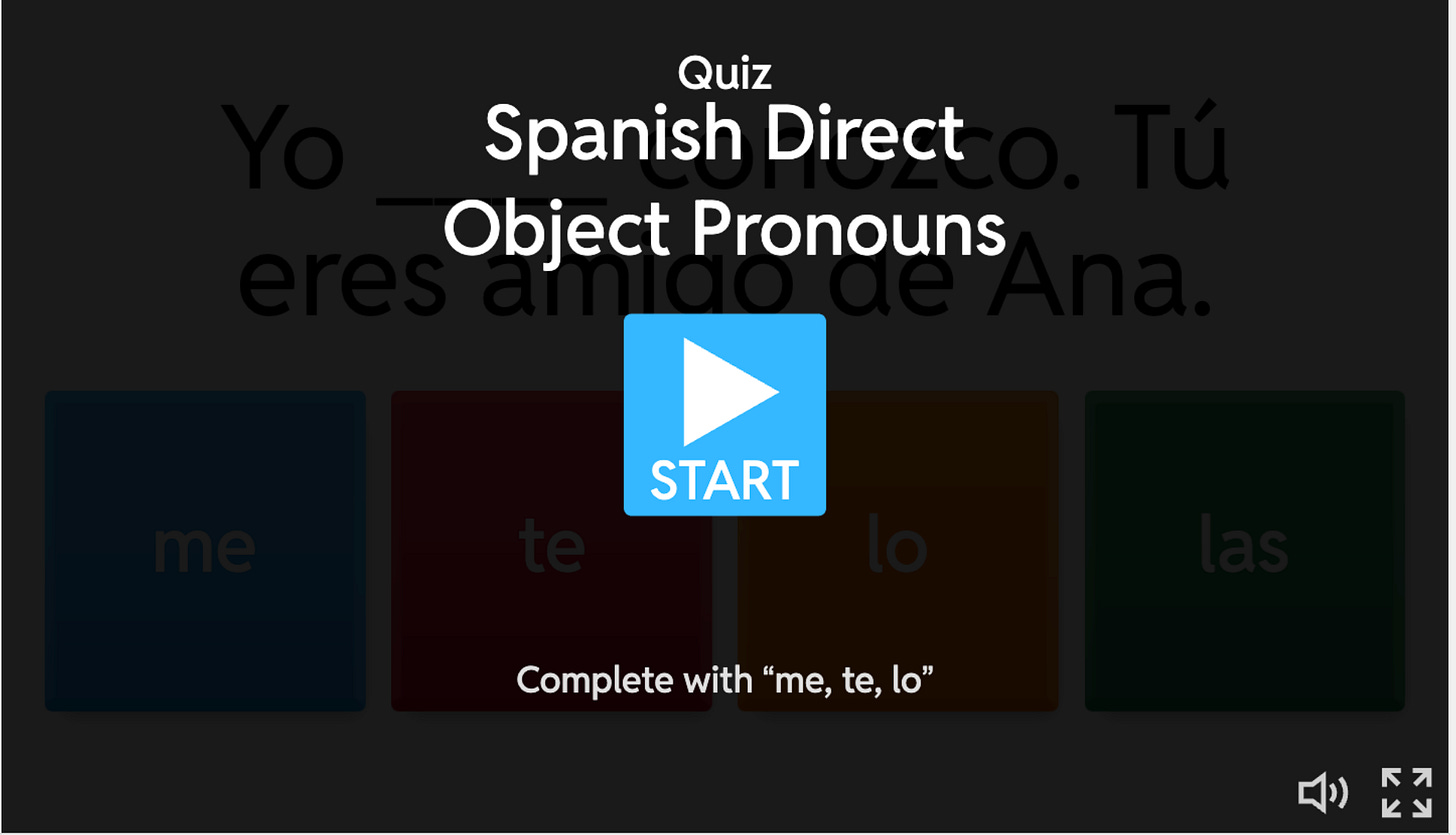Spanish Direct Object Pronouns
Spanish Direct Object Pronouns Made Easy: Rules, Examples & Practice
Direct object pronouns (pronombres de objeto directo) in Spanish replace nouns to avoid repetition. They answer the question "What?" or "Whom?" in a sentence.
For example:
"¿Ves a Juan?" → "Sí, lo veo." (Do you see Juan? → Yes, I see him.)
Here’s how they work:
Key Rules:
Placement: Before conjugated verbs ("Yo lo como") or attached to infinitives ("Voy a comerlo").
Gender & Number: Must match the noun replaced ("el libro" → "lo", "las manzanas" → "las").
Mixed Groups: Masculine plural (los) is used for mixed genders ("Ana y Carlos" → "los").
Complete the phrases using “lo, la, los, las”.
Click here to practice on Wordwall.
Complete with “me, te, lo”
Click here to practice on Wordwall.
Order the words to form sentences.
Click here to practice.
🎧 1-Minute Spanish Listening Activity (Single Speaker)
Audio Script (Natural Speed, Clear Pronunciation)
Context: A friend telling you about their day.
Spanish:
"Ayer fue un día interesante. Por la mañana, mi jefe me llamó a su oficina. Lo saludé y me dio un nuevo proyecto. En la tarde, encontré a María en el café y la invité a almorzar. Ella me recomendó un buen libro, así que fui a la librería y lo compré. Al regresar, mis amigos me esperaban. Les mostré el libro y ellos lo miraron con curiosidad. Finalmente, mi madre me envió un mensaje y yo le respondí inmediatamente."
English:
"Yesterday was an interesting day. In the morning, my boss called me to his office. I greeted him and he gave me a new project. In the afternoon, I found María at the café and invited her to lunch. She recommended me a good book, so I went to the bookstore and bought it. When I returned, my friends were waiting for me. I showed them the book and they looked at it curiously. Finally, my mother sent me a message and I replied to her immediately."
❓ Multiple-Choice Questions (a, b, c)
(Read aloud after the monologue, with 5-second pauses for answers.)
Match the subject pronouns with the direct object pronoun
Click here to practice.
Final Tips
Practice daily: Use pronouns in conversations.
Watch for gender/number: "Lo" vs. "la", "los" vs. "las".
Review exceptions: Like "leísmo, laísmo, loísmo" in some dialects.
Need more practice? Subscribe for weekly exercises!














